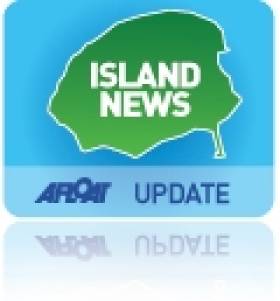Displaying items by tag: Dursey Island Cable Car
Dursey Island Cable Car Closes This Weekend
Dursey Island cable car service in West Cork is to close this Friday.
Cork County Council wants the Government to provide funding for a replacement ferry to the island.
Major repair work is needed on the country’s only cable car, at an estimated cost of €240,000. The Council has issued a notice closing the service until November 30.
Two towers need reinforcing due to storm damage
Minister for Rural and Community Development Heather Humphreys has been criticised by County Cork Mayor Gillian Coughlan for not dealing quickly enough with the issue: “I’m disappointed there has not been more of an effort from her Department to offer more assistance. I want a face-to-face meeting with the Minister. The time for Emails is over.”
Tourists are the biggest number of users of the cable car. Figures of up to 20,000 a year have been given. There are only a few permanent residents. A small number of mainland farmers keep animals on the island.
Bord Pleanala had given approval for a new cable car and visitor centre to serve the island, over-ruling rejection by its own Inspector who said it would bring excessive visitors to the area.
Dursey Island is located at the tip of the Beara Peninsula in Co. Cork.
Working Group to Decide Future of Ireland's Only Cable Car
#ISLAND NEWS - Cork County Council has set up a working group to examine the future of the Dursey Island Cable Car.
The group, established with the objective of securing the future sustainable operation of Ireland's only cable car – and the only sea-going cable car in Europe - had its first meeting on Friday 4 November.
The cable car between Dursey Island and Ballaghboy on the mainland is the main method of access to the island. It operates year round, weather permitting.
Featured in the working group are residents of the island and the local farming community, Comhar na nOileán, the Islands Division of the Department of Arts, Heritage and Gaeltacht Affairs, Fáilte Ireland, the Bere Island Projects group, West Cork Development Partnership and other island representation.
Cork County Council recently commissioned an expert engineering report on the Dursey Island Cable Car, which the group is now working from.
Take a trip on the Dursey Island Cable Car courtesy of YouTube:
- Cork
- Dursey Island
- Dursey Island Cable Car
- cable car
- island
- Ballaghboy
- mainland
- access
- working group
- operation
- Cork County Council
- farming community
- Comhar na nOileán
- Department of Arts Heritage and Gaeltact Affairs
- Fáilte Ireland
- Bere Island Projects
- West Cork Development Partnership
- engineering report
- video
- YouTube
























































